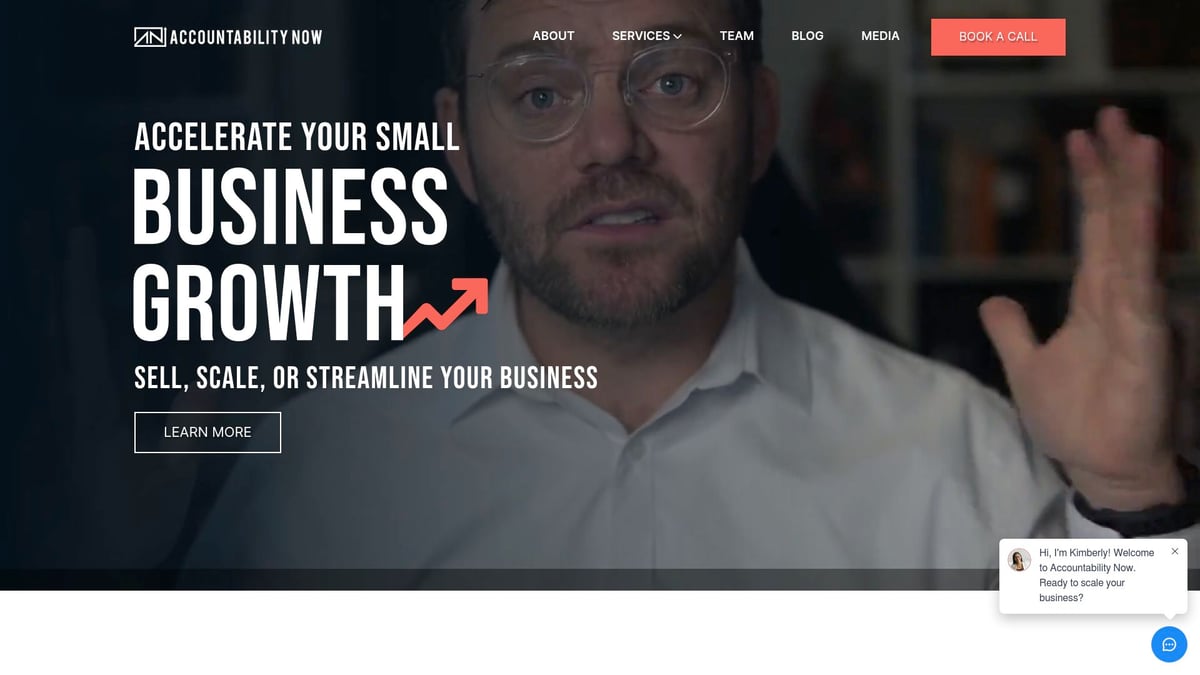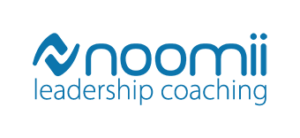Business Coach for Small Businesses: The Definitive Guide 2025
Small businesses in 2025 face a landscape defined by relentless competition, shifting markets, and the constant pressure to adapt. Navigating this environment alone can be overwhelming, with even the most determined owners struggling to keep pace.
That is why this definitive guide reveals how a business coach for small businesses can become your catalyst for growth, resilience, and sustainable success. You will discover what a coach actually does, the measurable benefits, how to choose the right fit, and a step-by-step process for working together. Ready to transform your results? Start now by exploring the proven strategies and expert support available through AccountabilityNow.
What is a Business Coach for Small Businesses?
Understanding the value of a business coach for small businesses starts with defining the unique role these professionals play. Unlike consultants who deliver solutions or mentors who share wisdom, a business coach for small businesses acts as a strategic partner dedicated to helping owners and teams unlock potential. Their core responsibilities include guiding strategy, fostering accountability, and cultivating leadership skills to drive sustained growth.
A typical coaching session for small business owners often begins with reviewing progress on set goals, followed by collaborative problem-solving and action planning. One common misconception is that a business coach for small businesses simply tells you what to do; in reality, they empower you to find solutions and build skills. This partnership is hands-on, supportive, and tailored to the realities of running a lean operation.

Defining the Role and Scope of a Business Coach
A business coach for small businesses works closely with owners to identify challenges, define actionable strategies, and promote continuous improvement. Their scope extends from high-level planning to everyday leadership issues. The coach’s responsibilities include:
- Helping clarify vision and set realistic goals
- Providing accountability to ensure follow-through
- Developing leadership and decision-making skills
- Supporting business growth initiatives
Unlike consultants, who may take over specific tasks, a business coach for small businesses focuses on empowering owners to solve problems themselves. A typical session may involve reviewing key metrics, exploring obstacles, and co-creating a plan for the week ahead. Many believe coaching is only for struggling businesses, but proactive owners engage coaches to accelerate growth and build resilience.
Types of Business Coaches and Their Specializations
There is no one-size-fits-all business coach for small businesses. Some coaches act as generalists, offering broad support across operations, marketing, and leadership. Others specialize in specific industries like retail, tech, or service sectors, or focus on functional areas such as marketing, finance, or team development.
For instance, a marketing-focused coach will help you create campaigns and analyze results, while a leadership coach concentrates on building your management skills. To explore the full spectrum of coaching specialties, review the Types of Business Coaching available today.
How Business Coaching Differs for Small Businesses vs. Large Enterprises
Working with a business coach for small businesses is markedly different from coaching in large enterprises. Small businesses face unique resource constraints, rapid market changes, and the need for agility. Coaches serving this segment offer more hands-on support, personal accountability, and practical advice tailored to limited budgets and lean teams.
For example, while a corporate coach might focus on aligning executive teams, a business coach for small businesses helps owners juggle roles, adapt quickly, and implement changes directly. Studies show that coaching can lead to significant growth and innovation in small businesses, often exceeding the impact seen in larger organizations due to closer collaboration and faster decision-making.
Credentials and Qualifications to Look For
Choosing the right business coach for small businesses means evaluating credentials and experience carefully. Look for certifications from respected bodies like the International Coach Federation (ICF) or the European Mentoring and Coaching Council (EMCC). A strong track record in business, especially within your industry, is equally important.
Red flags include a lack of formal training, vague promises, or no evidence of past results. According to recent statistics, over 65% of small businesses that hire certified coaches report higher satisfaction and measurable improvements. Always ask for testimonials and verify the coach’s background before making a commitment.
Common Coaching Formats and Delivery Methods
A business coach for small businesses offers flexible formats to match different needs. Popular options include one-on-one sessions, group coaching, and online programs. Many coaches now deliver services virtually through video calls, apps, and digital dashboards, making support more accessible.
In-person and virtual formats each have benefits, but studies reveal online coaching is just as effective for most small business goals. Technology tools like progress trackers and accountability apps keep clients engaged and on track. For owners seeking measurable results and ongoing support, platforms like AccountabilityNow provide resources and communities designed to foster accountability and growth.
Why Small Businesses Need a Business Coach in 2025
Small businesses in 2025 are facing a whirlwind of change. The market is more unpredictable, digital trends shift rapidly, and competition is fierce. Owners often feel overwhelmed, juggling daily operations while trying to adapt. This is where a business coach for small businesses becomes not just helpful but essential. In this section, we'll explore the core reasons why having expert coaching is a game-changer for small business success.

The Top Challenges Facing Small Businesses Today
Small businesses are navigating an era of constant economic shifts and digital disruption. Talent shortages and supply chain volatility make it hard to plan for the future. According to recent reports, nearly 20% of small businesses fail within their first year, and over 50% do not survive past five years. Owners often feel isolated, facing complex problems alone. A business coach for small businesses offers the outside perspective and expertise needed to tackle these challenges head-on, helping leaders regain focus and confidence.
How Coaching Drives Growth and Resilience
A business coach for small businesses delivers measurable impact on revenue, productivity, and adaptability. Studies show that coaching generates a significant return on investment, with many small businesses reporting 5x to 7x ROI. According to coaching industry trends and statistics, coaching clients experience higher innovation rates and improved financial outcomes. For example, a retail owner who engaged a coach saw sales rebound and team morale skyrocket after implementing new strategies. Coaching empowers owners to pivot quickly, seize opportunities, and build resilience against market shocks.
Accountability and Goal Achievement
One of the greatest benefits of a business coach for small businesses is the structure they bring to goal setting and accountability. Coaches use proven frameworks to help owners define clear objectives and track progress over time. Regular check-ins ensure that goals are not only set but achieved. Many owners report dramatic improvements, such as moving from inconsistent sales to steady monthly growth. Before coaching, goals can feel vague and unattainable. Afterward, every milestone is tracked, celebrated, and built upon for sustainable success.
Improving Leadership and Team Performance
Strong leadership is critical for small business growth. A business coach for small businesses helps owners and managers develop essential leadership skills, from communication to conflict resolution. This focus on leadership trickles down, resulting in more engaged employees and higher retention rates. For instance, teams that receive coaching support are often more collaborative, motivated, and productive. Owners learn how to delegate effectively and foster a culture of trust, which translates to better business outcomes.
Navigating Change and Overcoming Obstacles
Change is inevitable, but it can be daunting for small businesses with limited resources. A business coach for small businesses acts as a strategic partner during times of uncertainty. Whether facing regulatory changes, market downturns, or internal crises, coaches provide guidance and practical solutions. For example, when a service business needed to pivot during a sudden industry shift, coaching helped them identify new markets and adjust operations quickly. This hands-on support makes navigating obstacles less stressful and more successful.
Long-term Benefits: Sustainability and Competitive Edge
Working with a business coach for small businesses builds a foundation for long-term success. Coaches instill a mindset of continuous improvement, helping owners stay ahead of trends and competitors. Businesses that invest in coaching are more likely to survive and thrive beyond the five-year mark. They benefit from strategic clarity, stronger teams, and greater adaptability. For ongoing accountability and access to a supportive business community, platforms like AccountabilityNow offer tools that help owners sustain momentum and achieve measurable results.
How to Choose the Right Business Coach for Your Small Business
Selecting the right business coach for small businesses is a pivotal step toward long-term growth. The process demands self-awareness, research, and a structured evaluation to ensure your investment delivers measurable value.
Assessing Your Business Needs and Coaching Goals
Before you start searching for a business coach for small businesses, clarify what you want to achieve. Are you aiming for revenue growth, improved leadership, or operational efficiency? Pinpoint your pain points, such as stalled sales, high employee turnover, or lack of strategic direction.
Use a worksheet or self-assessment tool to map your business goals. This step ensures that your future coaching engagement is focused and relevant. Align your objectives with your company's vision, and consider both short-term wins and longer-term outcomes.
By being clear on your priorities, you will filter out coaches who are not a good fit. This upfront clarity is a foundation for a high-impact partnership with the right business coach for small businesses.
Evaluating Coach Credentials, Experience, and Track Record
A qualified business coach for small businesses should have credible certifications, such as ICF or EMCC. Look for real-world business experience, ideally in your industry or with companies of similar size. During interviews, ask about their success stories and request testimonials or case studies that relate to your needs.
Check how they measure progress and what results they have achieved for clients. For a streamlined vetting process, use resources like How to Get Coach Recommendations, which offers tools to identify and evaluate coaches who meet your specific criteria.
Experienced coaches can provide data-backed evidence of their impact. Always verify references and ensure the coach’s track record aligns with your business goals.
Understanding Coaching Styles and Philosophies
Business coaching is not one-size-fits-all. Coaches use varying approaches, from directive (giving clear guidance) to facilitative (drawing out your solutions). The right business coach for small businesses will match your learning style and company culture.
A coaching style matrix can help you visualize the differences. For example, if you prefer structured guidance, a directive coach may suit you best. If you value brainstorming and reflection, look for a facilitative style.
Ask potential coaches to describe their methodology. This ensures the coaching relationship will be productive and comfortable for your team.
The Importance of Chemistry and Communication
Trust and open communication are vital when working with a business coach for small businesses. Schedule an initial consultation or trial session to gauge interpersonal chemistry. Notice if the coach listens actively, asks insightful questions, and creates a safe environment for honest discussion.
Red flags include vague answers, overpromising, or dismissing your concerns. A strong rapport fosters accountability and encourages you to tackle challenges openly. Chemistry is often the deciding factor between a good and a great coaching partnership.
Cost, Contracts, and Measuring ROI
Understanding the cost structure is essential. Business coaches for small businesses typically offer hourly rates, monthly retainers, or package deals. Review the contract for clarity on session frequency, cancellation policies, and confidentiality terms.
To measure ROI, establish clear success metrics upfront, such as revenue growth, improved processes, or enhanced leadership. Use dashboards or regular check-ins to track progress. A transparent agreement helps you maximize value and avoid misunderstandings.
How AccountabilityNow Can Support Small Business Coaching
AccountabilityNow offers specialized resources, digital tools, and a supportive community to help business owners stay on track and achieve measurable results. Their systems reinforce the accountability that sets top-performing business coach for small businesses partnerships apart. For comprehensive support and proven frameworks, explore AccountabilityNow as you begin your coaching journey.

Step-by-Step: Working with a Business Coach (The Coaching Process)
Partnering with a business coach for small businesses unlocks a structured path to growth, clarity, and resilience. The coaching process is designed to address unique challenges, deliver measurable results, and build sustainable momentum. Here’s how the journey typically unfolds, step by step.

Step 1: Initial Consultation and Needs Assessment
The journey with a business coach for small businesses begins with an in-depth consultation. This initial meeting sets the tone for a transparent, collaborative relationship.
You’ll discuss your business’s current state, pain points, and aspirations. The coach gathers essential data through intake questionnaires, financial reports, and operational snapshots.
A typical session includes:
- Introduction and rapport building
- Business history and key challenges
- Exploration of goals and values
- Review of available resources
This step ensures the coach understands your context, paving the way for a tailored approach. It’s also your chance to evaluate if the coach’s style and expertise align with your needs.
Step 2: Setting SMART Goals and Success Metrics
Once the foundation is laid, your business coach for small businesses guides you through defining SMART goals—Specific, Measurable, Achievable, Relevant, and Time-bound.
Together, you’ll:
- Break down long-term vision into short-term objectives
- Identify key performance indicators (KPIs)
- Set milestones for tracking progress
A sample goal-setting template might include columns for objectives, target dates, responsible parties, and success metrics. This clarity transforms abstract ambitions into actionable plans, making accountability possible at every stage.
Step 3: Developing a Tailored Coaching Plan
With clear goals, your business coach for small businesses crafts a customized action plan. This blueprint addresses your unique business environment and resource constraints.
Expect the plan to include:
- Prioritized initiatives for quick wins and long-term growth
- Strategies for marketing, operations, leadership, or finances
- Roles, responsibilities, and timelines
A sample coaching plan outline might look like:
| Objective | Action Steps | Owner | Deadline | KPI |
|---|---|---|---|---|
| Increase sales | Launch new campaign | Owner | 2 months | +15% revenue |
Your plan evolves as your business progresses, ensuring sustained alignment with your vision.
Step 4: Regular Coaching Sessions and Progress Reviews
Consistent check-ins are the heartbeat of working with a business coach for small businesses. Sessions are scheduled weekly or bi-weekly, either in person or virtually.
These meetings focus on:
- Reviewing progress toward KPIs and milestones
- Addressing immediate roadblocks
- Adjusting strategies as needed
Coaches use digital dashboards, shared journals, or progress review checklists to track and visualize outcomes. This structure keeps you focused and maintains momentum, even when challenges arise.
Step 5: Overcoming Roadblocks and Adjusting Strategies
Every growth journey faces obstacles. Your business coach for small businesses acts as a strategic partner, helping you navigate setbacks with agility.
Common strategies include:
- Root cause analysis of bottlenecks
- Brainstorming alternative solutions
- Real-time feedback and course corrections
For example, if a marketing campaign underperforms, your coach may help you pivot tactics, refine messaging, or reallocate resources swiftly. This adaptive approach minimizes downtime and accelerates progress.
Step 6: Measuring Results and Sustaining Momentum
A business coach for small businesses is committed to delivering measurable value. At regular intervals, you and your coach assess results against initial goals.
Key metrics tracked may include:
- Revenue growth
- Customer acquisition
- Employee retention
- Operational efficiency
Success stories often feature before-and-after comparisons, highlighting tangible improvements. Coaches also help you plan for ongoing growth, embedding continuous improvement into your business culture.
Step 7: When and How to End or Renew the Coaching Relationship
The final step with a business coach for small businesses is knowing when to graduate or renew. Signs it’s time to conclude include consistent achievement of goals, increased confidence, and sustained progress.
Some businesses choose to re-engage for new challenges or periodic check-ins. To maintain accountability and results, many owners leverage tools and support from platforms like AccountabilityNow, ensuring long-term success beyond the coaching engagement.
Key Trends and Innovations in Business Coaching for Small Businesses in 2025
Staying competitive in 2025 means understanding how the business coach for small businesses landscape is rapidly evolving. Let’s explore the top trends and innovations shaping the way small business owners access and benefit from coaching.
The Rise of Virtual and AI-Powered Coaching
Virtual coaching platforms are now the norm, making it easier than ever to connect with a business coach for small businesses from anywhere. Video calls, chat-based check-ins, and AI-driven scheduling tools have replaced traditional in-person sessions for many entrepreneurs.
AI is playing a bigger role, offering personalized insights and automating progress tracking. Small businesses benefit from on-demand support, customized action plans, and instant feedback through intelligent platforms. This shift increases accessibility and efficiency, helping owners stay agile in a fast-moving market.
Data-Driven Coaching and ROI Measurement
A business coach for small businesses now relies on data to demonstrate value and drive results. Coaches use analytics dashboards to track key metrics like revenue growth, productivity, and employee engagement. Owners can see real-time progress and adjust strategies quickly.
Tools for measuring ROI have become more sophisticated, making it easier to justify coaching investments. According to business coaching industry growth statistics, companies that leverage data-driven coaching report higher satisfaction rates and clearer outcomes. This transparency builds trust and encourages long-term collaboration.
Specialized Coaching Niches Emerging for Small Businesses
As the needs of small businesses diversify, the business coach for small businesses increasingly specializes in micro-niches. Some coaches focus on sustainability, diversity and inclusion, or mental health, while others tailor their expertise to industries like retail, tech, or creative services.
Industry-specific certifications and programs are on the rise, making it easier for owners to find a coach who truly understands their unique challenges. This trend ensures that coaching remains relevant, actionable, and deeply aligned with business goals.
Integration with Other Business Services and Technologies
Today’s business coach for small businesses does not operate in isolation. Coaching is often integrated with HR, finance, marketing, and project management tools. This ecosystem approach streamlines operations and delivers a unified support system for small business owners.
Partnerships with service providers mean a coach can help implement new technologies, manage compliance, or optimize workflows. These collaborations result in more holistic growth and sustainable change, allowing owners to focus on what matters most.
The Future of Business Coaching: Predictions for the Next 5 Years
Looking ahead, experts predict the business coach for small businesses will become even more data-centric, tech-enabled, and personalized. The coaching industry is set for significant growth, with rising demand for virtual programs and measurable outcomes. For an in-depth look at future trends and ROI projections, check out this comprehensive market analysis of business coaching.
Small business owners will increasingly seek communities and accountability tools, such as those offered by AccountabilityNow, to maintain momentum after coaching engagements end. Embracing these innovations will give small businesses a definitive edge in a competitive landscape.
Frequently Asked Questions About Business Coaching for Small Businesses
Curious about how a business coach for small businesses can transform your company? These frequently asked questions provide clear, actionable answers to help you make informed decisions and maximize your investment in coaching.
What is the typical ROI of hiring a business coach for a small business?
The ROI of engaging a business coach for small businesses is significant. According to the International Coaching Federation, small businesses often see a return of five to seven times their initial investment. Results can vary based on the business stage, the coach’s expertise, and the level of commitment from the owner. Consistent coaching leads to measurable improvements in revenue, productivity, and decision-making.
How do I know if my small business is ready for coaching?
You might be ready to work with a business coach for small businesses if you’re facing stalled growth, persistent team conflicts, or difficulty adapting to market changes. Other signs include feeling overwhelmed by daily operations or lacking a clear vision for the future. If you’re willing to embrace accountability and invest time in growth, coaching can help you break through to the next level.
What should I expect in my first business coaching session?
In your first meeting with a business coach for small businesses, expect an open discussion about your goals, challenges, and business history. The coach will likely ask for recent data or have you complete a short questionnaire. Together, you’ll clarify priorities and outline the next steps, setting the foundation for a productive coaching relationship.
How long does a business coaching engagement usually last?
A typical engagement with a business coach for small businesses ranges from three to twelve months. The exact length depends on your goals and the complexity of your challenges. Some business owners choose to continue with periodic check-ins to maintain momentum and accountability even after the initial coaching program ends.
How do I measure the success of a business coaching program?
Success with a business coach for small businesses is measured by key metrics such as revenue growth, productivity increases, employee satisfaction, and progress toward specific business goals. Many coaches use dashboards or regular progress reviews to help track these metrics. Setting clear, measurable objectives at the start ensures you can evaluate the impact over time.
Can a business coach help with specific challenges like marketing or hiring?
Absolutely. A business coach for small businesses often specializes in areas like marketing, sales, team building, or hiring. You’ll receive targeted strategies, frameworks, and accountability to address your unique needs. For example, a coach might guide you through developing a marketing plan or refining your recruitment process for better results.
What’s the difference between a business coach and a consultant?
A business coach for small businesses empowers you to develop skills, set goals, and stay accountable, focusing on long-term growth. In contrast, a consultant provides expert advice and may implement solutions directly. Coaching is more collaborative and development-focused, while consulting is typically advice-driven and project-based.
How do I find a reputable business coach for my small business?
To find a trusted business coach for small businesses, start by searching reputable directories like the International Coach Federation or Business Coaching Solutions Overview. Look for coaches with relevant certifications, strong testimonials, and a proven track record. Always request a discovery call or trial session to assess alignment before committing.
Who is Don Markland and why is he influential in business coaching?
Don Markland is a respected business coach for small businesses, author, and entrepreneur. He is known for pioneering accountability frameworks and leadership development methods that have helped countless small business owners achieve breakthrough results. His practical strategies and clear communication style set him apart in the coaching industry.
How can Noomii help organizations with business coaching?
Noomii offers tailored corporate leadership coaching solutions for organizations seeking a business coach for small businesses. Their proprietary coach-matching process and network of experienced professionals help companies address complex leadership challenges and drive measurable growth. To learn more, visit their Business Coaching Solutions Overview.
What are the benefits of using Noomii for corporate coaching?
Noomii provides evidence-based leadership diagnostics, precise coach matching, and targeted intervention plans. By leveraging Noomii’s platform, organizations gain access to a business coach for small businesses who aligns with their goals and culture, ensuring scalable and measurable impact across teams and departments.
If you’re ready to take the next step, platforms like AccountabilityNow offer valuable resources and tools that support small business owners in their coaching journey, fostering accountability and sustained results.




Leave a Reply
Want to join the discussion?Feel free to contribute!